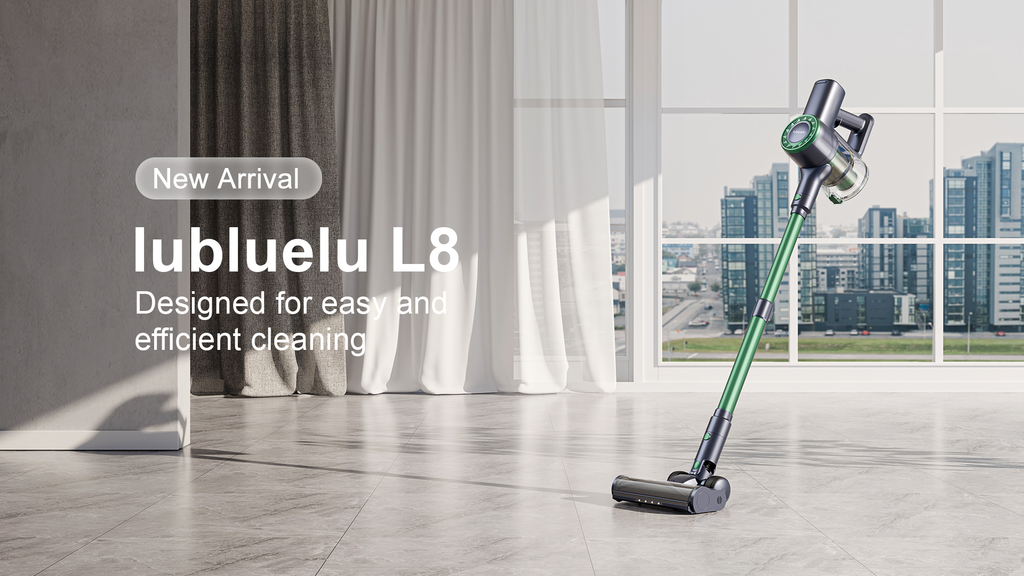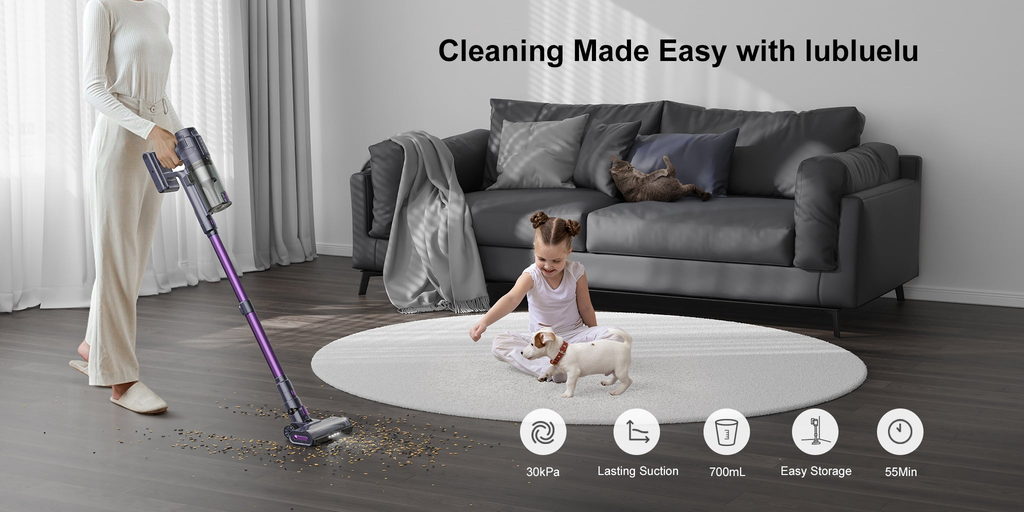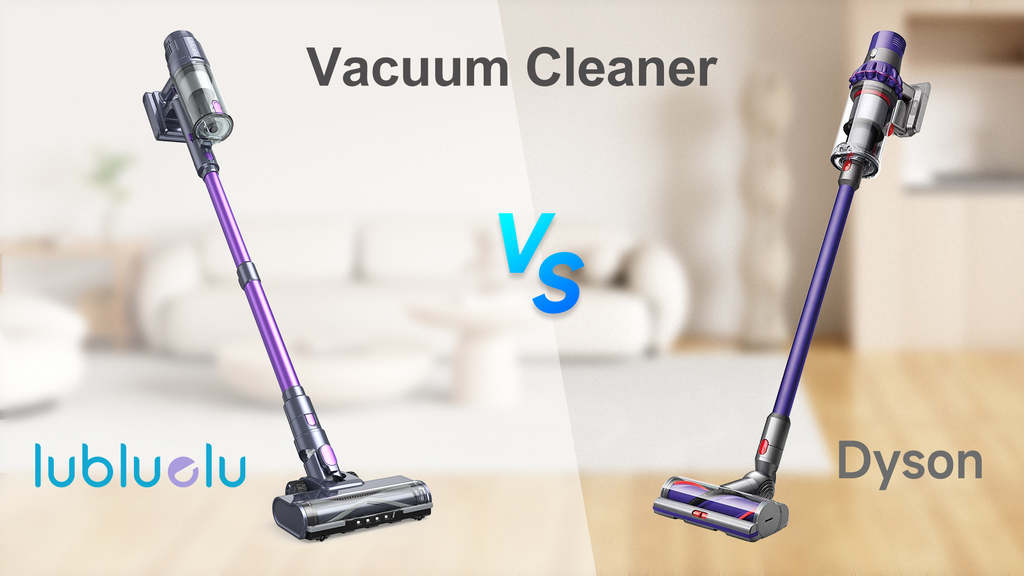Dusting Off the Dirt: Your Vacuum Cleaner Questions Answered !

In the realm of home appliances, wattage and suction power are often touted as indicators of a product's performance. But is higher wattage always better? Does a vacuum cleaner with more suction power necessarily mean it's more efficient? When it comes to cordless vacuum cleaners, the choices can be daunting. How do you sift through the options to find the one that's right for you? And what about the power consumption of handheld cordless vacuums? Understanding these factors is crucial to making informed decisions. In this blog, we'll explore these questions and provide tips on how to make your vacuum cleaner more efficient. Stay tuned as we delve into the world of vacuum cleaners and power ratings.
1. Is higher wattage always better?
2. What about the suction power of a vacuum cleaner?
3. How Do I Choose a Cordless Vacuum Cleaner?
4. How much power does a handheld cordless vacuum use?
5. How can I make my vacuum more efficient?
1. Is higher wattage always better?
Let's start with the age-old debate: corded vs. cordless. While corded vacuum cleaners offer consistent power and uninterrupted cleaning sessions, they come with the hassle of tangled cords and limited mobility. On the other hand, cordless vacuum cleaners provide unmatched convenience and freedom of movement but may sacrifice some power and runtime. So, which is better? It ultimately depends on your cleaning needs and lifestyle preferences.

(best corded vacuum cleaners 2024)
When it comes to choosing a cordless vacuum cleaner, several factors come into play. Battery life, suction power, weight, and versatility are just a few considerations to keep in mind. Look for models with long-lasting batteries and adjustable power settings to tackle various cleaning tasks with ease. Additionally, consider the size and weight of the vacuum, as well as its ability to clean different surfaces and hard-to-reach areas.

(lubluelu Cordless Vacuum with Large Dust Cup Capacity)
2.What about the suction power of a vacuum cleaner?
Many consumers believe that higher wattage equates to better suction, but this isn't always the case. While wattage can indicate the vacuum's power consumption, it doesn't necessarily reflect its suction capabilities. Instead, focus on other factors, such as airflow, suction efficiency, and brush design, to determine the vacuum's cleaning performance.
3. How Do I Choose a Cordless Vacuum Cleaner?
When selecting a cordless vacuum cleaner, several factors should be considered. These include battery runtime, charging time, suction power, accessories, filtration system, and overall build quality. Evaluate your cleaning needs, such as the type of flooring and the presence of pets or allergies, to determine the appropriate features and specifications required. Reading customer reviews and comparing different models can also provide valuable insights.
4. How much power does a handheld cordless vacuum use?
The power consumption of a handheld cordless vacuum can vary depending on factors such as the model, brand, and battery capacity. On average, most handheld cordless vacuums use between 15 and 100 watts of power. This power is supplied by the rechargeable battery pack that is built into the vacuum. Higher-end models with more powerful motors and advanced features may consume more power, while basic models with simpler designs may use less. Additionally, the runtime of the vacuum will also depend on the power consumption and the capacity of the battery. Overall, handheld cordless vacuums are designed to provide sufficient suction power for quick cleaning tasks while being energy-efficient and portable.

5. How can I make my vacuum more efficient?
To optimize the performance of your vacuum cleaner, start by regularly maintaining its components. Clean or replace the filters as needed to prevent airflow restrictions and maintain strong suction power. Additionally, empty the dustbin or replace the vacuum bag frequently to prevent debris buildup and ensure consistent performance. Adjust the height settings of the vacuum to match the surface you're cleaning, ensuring optimal contact for effective dirt removal. Utilize the appropriate attachments for specific cleaning tasks, such as crevice tools for tight spaces and upholstery brushes for furniture. Lastly, establish a regular cleaning routine to stay on top of household messes and prevent excessive dirt accumulation. By implementing these practices, you can enhance the efficiency and longevity of your vacuum cleaner while maintaining a clean and healthy home environment.

( Saving with Energy-Efficient of lubluelu vacuum cleaner )
As for the age-old question of whether vacuum cleaners can suck up water, the answer is a resounding no. Most vacuum cleaners, including cordless models, are not designed to handle liquids and can be damaged if exposed to water. Stick to dry surfaces and invest in a separate wet vacuum for any liquid spills or messes.
Choosing the right cordless vacuum cleaner requires careful consideration of your cleaning needs, lifestyle, and budget. While corded models offer consistent power, cordless options provide unmatched convenience and versatility. By weighing the pros and cons and doing your research, you can find the perfect vacuum cleaner to keep your home clean and tidy—without the hassle of cords.


When my lubluelu SLD60D robot vacuum gets low on charge while in operation stops working and goes to charge. Why doesn’t it return to where it left rpfrom?
Leave a comment